Filter by
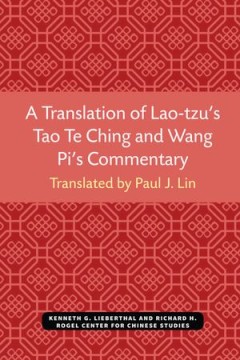
A Translation of Lao-tzu’s Tao Te Ching and Wang Pi’s Commentary
During the Spring-Autumn period (722–420 BCE) and the time of the Warring States (480–222 CE), China was in great turmoil. Intellectuals and social reformers sifted through their wisdom and knowledge of China’s experiences up to then, attempting to find a solution to their situation.The Tao Te Ching, one of the foremost products of the era, is a metaphysical book, a source of the highest …
- Edition
- -
- ISBN/ISSN
- 9780472901388
- Collation
- -
- Series Title
- -
- Call Number
- 301 LIN t
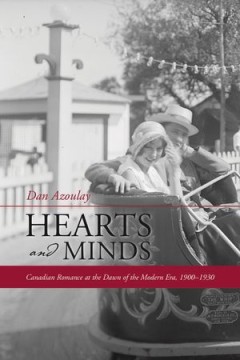
Hearts and minds : Canadian romance at the dawn of the modern era, 1900-1930
What was romance like for Canadians a century ago? What qualities did marriageable men and women look for in prospective mates? How did they find suitable partners in difficult circumstances such as frontier isolation and parental disapproval, and, when they did, how did courtship proceed in the immediate post-Victorian era, when traditional romantic ideals and etiquette were colliding with the…
- Edition
- -
- ISBN/ISSN
- 978-1-55238-521-0
- Collation
- -
- Series Title
- -
- Call Number
- 392.409 710 904 1 AZO h
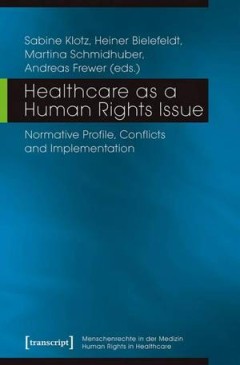
Healthcare as a Human Rights Issue : Normative Profile, Conflicts and Impleme…
This book deals with various facets of the human right to health: its normative profile as a universal right, current political and legal conflicts and contextualized implementation in different healthcare systems. The authors come from different countries and disciplines—law, political science, ethics, medicine etc.—and bring together a broad variety of academic and practical perspectives.…
- Edition
- -
- ISBN/ISSN
- 978-3-8394-4054-4
- Collation
- -
- Series Title
- -
- Call Number
- 362.1 HEA
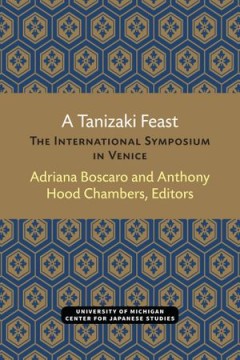
A Tanizaki Feast: The International Symposium in Venice
This volume presents 18 eighteen essays, written by scholars from six countries, on Tanizaki Jun’ichiro (1886–1965), one of the great writers of the 20th century. The essays were originally prepared for a landmark international symposium in Venice in 1995, at which 22 speakers addressed an audience of about two hundred students and scholars in the Aula Magna of the University of Venice. Top…
- Edition
- -
- ISBN/ISSN
- 9780472902163
- Collation
- -
- Series Title
- -
- Call Number
- 301 TAN t
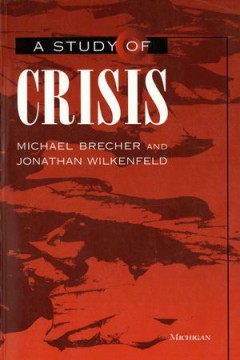
A Study of Crisis
As the twentieth century draws to a close, it is time to look back on an epoch of widespread turmoil, including two world wars, the end of the colonial era in world history, and a large number of international crises and conflicts. This book is designed to shed light on the causes and consequences of military-security crises since the end of World War I, in every region, across diverse economic…
- Edition
- -
- ISBN/ISSN
- 9780472903122
- Collation
- -
- Series Title
- -
- Call Number
- 337 WIL s
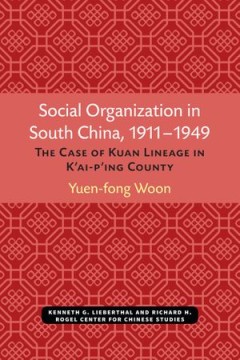
Social Organization in South China, 1911–1949: The Case of Kuan Lineage in …
Bridging the collapse of the Confucian state and the establishment of the People’s Republic of China, the period 1911–49 is particularly fascinating to historians, anthropologists, sociologists and political scientists. Unfortunately, it is also a very confusing period, full of shifts and changes in economic, social, and political organizations. The social implications of these changes, and…
- Edition
- -
- ISBN/ISSN
- 9780472902231
- Collation
- -
- Series Title
- -
- Call Number
- 301 WOO s
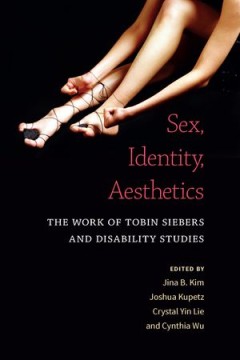
Sex, Identity, Aesthetics: The Work of Tobin Siebers and Disability Studies
The late Tobin Siebers was a pioneer of, and one of the most prominent thinkers in, the field of disability studies. His scholarship on sexual and intimate affiliations, the connections between structural location and coalitional politics, and the creative arts has shaped disability studies and continues to be widely cited. Sex, Identity, Aesthetics: The Work of Tobin Siebers and Disability S…
- Edition
- -
- ISBN/ISSN
- 9780472902477
- Collation
- -
- Series Title
- -
- Call Number
- 371.9 SEX s
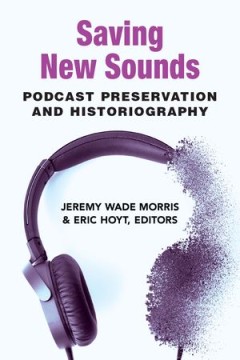
Saving New Sounds: Podcast Preservation and Historiography
Over seventy-five million Americans listen to podcasts every month, and the average weekly listener spends over six hours tuning into podcasts from the more than thirty million podcast episodes currently available. Yet despite the excitement over podcasting, the sounds of podcasting’s nascent history are vulnerable and they remain mystifyingly difficult to research and preserve. Podcast feeds…
- Edition
- -
- ISBN/ISSN
- 9780472901241
- Collation
- -
- Series Title
- -
- Call Number
- 384.5 SAV s
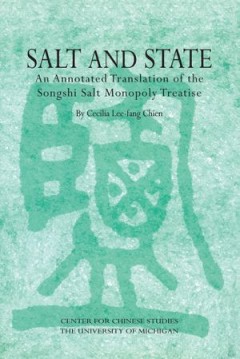
Salt and State: An Annotated Translation of the Songshi Salt Monopoly Treatise
Salt and State is an annotated translation of a treatise on salt from Song China. From its inception in the Han dynasty (206 B.C.–220 A.D.), the salt monopoly was a key component in the Chinese government's financial toolkit. Salt, with its highly localized and large-scale production, was an ideal target for bureaucratic management.In the Song dynasty (960–1279), fiscal pressures on the gov…
- Edition
- -
- ISBN/ISSN
- 9780472901456
- Collation
- -
- Series Title
- -
- Call Number
- 301 CHI s
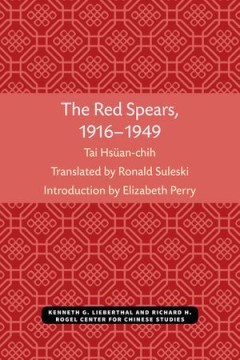
The Red Spears, 1916–1949
Before Tai Hsüan-chih’s work on the Red Spear Society, the subject was a little understood movement that seemed of only passing interest to scholars of China—intriguing for its peculiar beliefs and rituals, perhaps, but hardly of central importance to modern Chinese history. Today, however, thanks in no small measure to the pioneering work of Professor Tai, the Red Spears have gained a sec…
- Edition
- -
- ISBN/ISSN
- 9780472901876
- Collation
- -
- Series Title
- -
- Call Number
- 302 TAI r
 Computer Science, Information & General Works
Computer Science, Information & General Works  Philosophy & Psychology
Philosophy & Psychology  Religion
Religion  Social Sciences
Social Sciences  Language
Language  Pure Science
Pure Science  Applied Sciences
Applied Sciences  Art & Recreation
Art & Recreation  Literature
Literature  History & Geography
History & Geography